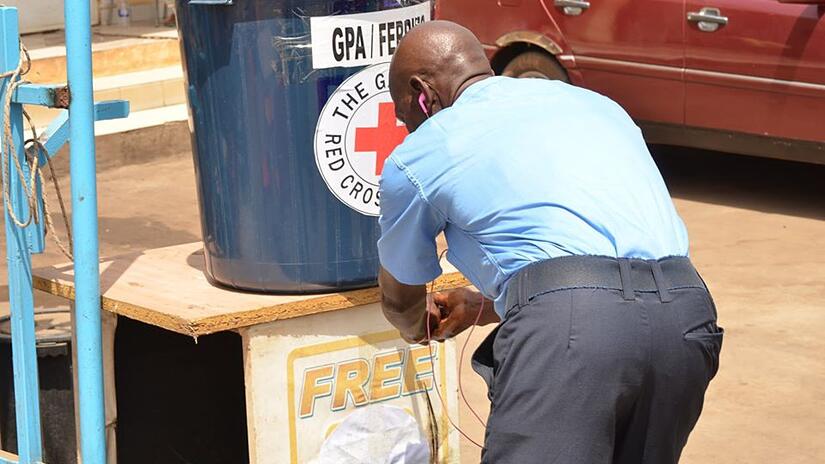New York/Geneva, 24 April 2020 – Following his briefings to UN permanent missions this week, Francesco Rocca, President of the International Federation of Red Cross and Red Crescent Societies (IFRC), stressed the importance of communities coming together to mitigate the immediate and secondary impacts of the COVID-19 pandemic across the global community.
“Covid-19 is a wake-up call to the international community. There is an urgent need for global solidarity to address this pandemic. This crisis connects us all in an unprecedented way. The safety and well-being of each individual are critical for the safety and well-being of the entire world,” said President Rocca.
Red Cross and Red Crescent teams are supporting even the most vulnerable communities affected by the crisis. In Syria, Red Crescent volunteers are safely distributing food door-to-door, despite the on-going threat of food insecurity among more than 9 million people. Local personal protective equipment has been purchased, protecting volunteers who are operating ambulances around the clock.
In Bangladesh, volunteer teams across Cox’s Bazar have set up water distribution points and are going home-to-home to teach more than 372,000 people hand-washing skills. In Venezuela, teams have worked to provide more than 40 tons of humanitarian aid, including medical supplies and hygiene items, to those most in need. Dedicated Red Cross volunteers and staff are running more than 40 health care sites across the country.
The Red Cross and Red Crescent is also scaling up community response efforts, early warning systems and contact tracing across much of Africa.
“We are only starting to see glimpses of the impact COVID-19 might have on the African continent. We need to strengthen community response in under-resourced countries to help prevent the COVID-19 pandemic from becoming an even more complex disaster,” Rocca said.
There are already signs of hope. In Somaliland, a Red Crescent team that had already been trained to respond to disease outbreaks through community-based surveillance methods detected the first case of COVID-19 early. The proper steps were taken in sharing information, isolating the case, and alerting fellow community members.
The secondary impacts of COVID-19, such as poverty and the severe threat of food insecurity to millions around the world, “should give a wake up a call to the international community, Rocca warned.
“COVID-19 is changing our communities and we need to plan, together with Institutions, a social response before it is too late,” he said. “The higher price of food now means that an increasing number of families will likely be reducing the number of meals they consume per day.
To further slow, and eventually halt the spread of the pandemic, “measures should be guided by health data, and supported by responsible communication to all citizens,” Rocca added.
This includes adequate testing, contact tracing and strengthening of health care systems as well as providing psychosocial support for community members.
To ensure a proper response is possible, Rocca urged that essential humanitarian aid must be able to flow into countries without added barriers like sanctions.
“Procedures for exemptions are often lengthy and costly. We are engaging with the stakeholders concerned to seek exemptions for essential humanitarian items and to meet the urgent needs of the population,” Rocca said.
Rocca emphasized that prevention measures including proper hand washing and physical distancing should remain steadily in place, as well as consistent community engagement to ensure that people feel informed and empowered - both key factors to help save millions of lives.
A full recording of the press briefing is available here.
Press release
IFRC Global COVID-19 study: vaccine bank an ‘essential element’ of next pandemic response
IFRC Global COVID-19 study: vaccine bank an ‘essential element’ of next pandemic response
| Press release

